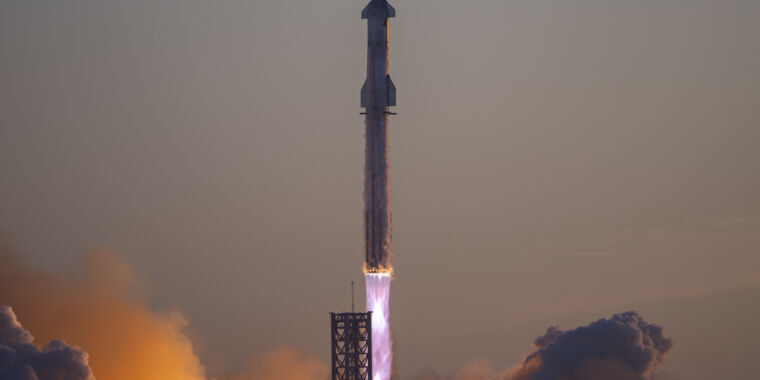- cross-posted to:
- [email protected]
- cross-posted to:
- [email protected]
Really pleased to see the improved reliability of the Raptor engines and TVC system compared to IFT-1. The sight of 33 healthy Raptors firing simultaneously was stunning!
Was it the launchpad explosion on ift 1 that broke the hydraulics? Or was that an issue with the system itself?
The system itself. It seems like the hydraulics failed because the computers on IFT-2 got destroyed in fires/engine failures
During ascent, the vehicle sustained fires from leaking propellant in the aft end of the Super Heavy booster, which eventually severed connection with the vehicle’s primary flight computer. This led to a loss of communications to the majority of booster engines and, ultimately, control of the vehicle.
“I meant to do that. Trust me bro.” -Elon
That’s how you do rocket science.
Only if you don’t care about tossing money into the ocean. Literally everyone else does extensive testing before launch because it’s usually just as useful and way cheaper.
Last time, the big thing that killed the test was damage from the pad exploding. Anyone could have told them they needed a deluge system, and anyone else would have done a test fire on the pad, but Elon wanted his headline and on the cheap.
SpaceX does the testing before launch too. They test their engines and stages more than about anyone else. They are less conservative in their designs, so they push the limit with integrated testing.
Speaking of “tossing money in the ocean”, tell me again how much money “literally everyone else” has spent so far on their rockets? Like, how’s the Boeing Starliner doing? How much money is the SLS program saving taxpayers?
if SpaceX is doing it so wrong it’s interesting how they’re managing to build the most advanced vehicles cheaper than anybody else. hmmm





